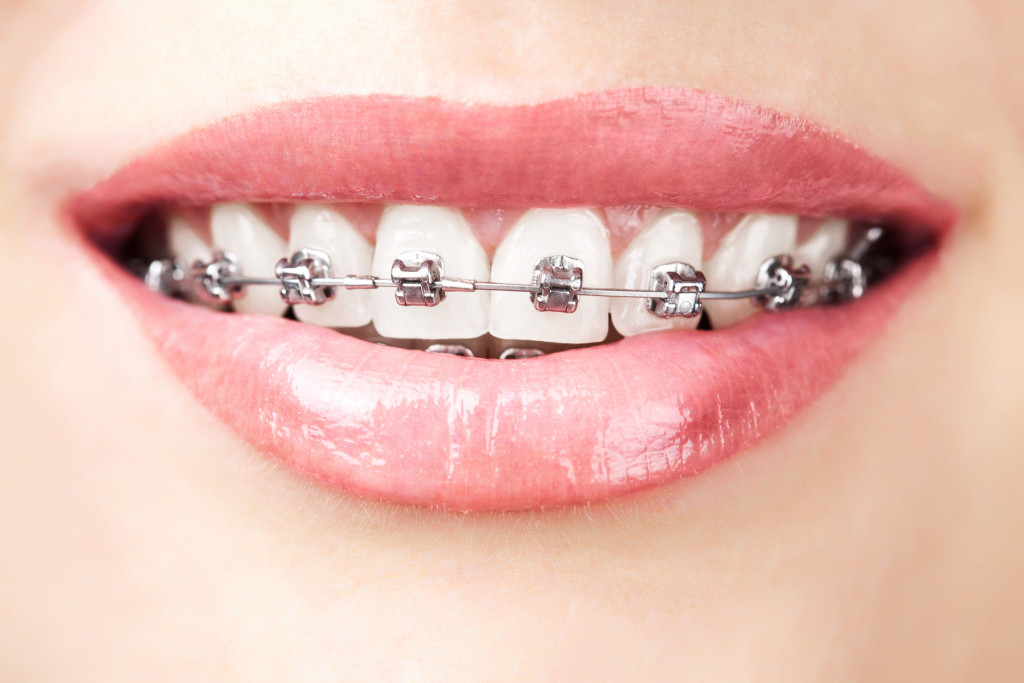- The initial and crucial step is to visit the dentist to deal with a misaligned bite.
- To keep your mouth healthy, it’s important to have dental checkups and cleanings done regularly.
- Motivating your teenager to comply with their orthodontic treatment plan is crucial for success.
- Regularly check the progress and promptly consult with the orthodontist to address concerns.
Having a misaligned bite can be an uncomfortable and embarrassing experience for teens. It can lead to self-esteem issues, difficulty eating certain foods, and even pain or headaches. Fortunately, there are ways that parents can help their teen deal with this issue. With the right guidance, your teen can manage their misaligned bite and return to having a beautiful smile.
Visit the dentist to determine the best course of action.
Visiting the dentist is the first and most important step when dealing with a misaligned bite. The dentist can assess your teen’s situation and determine the best action for them. Here are some tips on what to do:
Discuss orthodontic braces options.

Regarding orthodontic braces options, several choices are available to help teens deal with misaligned bites. Traditional metal braces, ceramic braces, and Invisalign aligners are popular options. It is important to discuss these options properly to help teens make informed decisions. While traditional metal braces are the most common, ceramic braces are a great alternative for those looking for a more discreet look.
Conversely, Invisalign offers a completely invisible option for teens who might feel self-conscious about wearing braces. It is important to discuss each option’s pros and cons with your teen before making a decision. Properly discussing these orthodontic braces options can help alleviate your teen’s concerns and help them feel more comfortable getting the treatment they need.
Keep up with regular dental checkups and cleanings.
Maintaining regular dental checkups and cleanings is crucial for oral health, especially when dealing with a misaligned bite. These appointments allow the dentist to closely monitor changes in your teen’s teeth and gums and catch any potential problems early on. Additionally, cleanings help remove any harmful buildup that regular brushing and flossing may miss, ultimately preventing more serious issues.
While the idea of braces or other orthodontic treatments may seem daunting, keeping up with these routine checkups and cleanings can go a long way in ensuring your teen’s oral health and confidence. As an expert in the field, it’s recommended to schedule appointments every six months, but your dentist may suggest more frequent visits depending on your teen’s condition.
Encourage your teen to follow their treatment.
Encouraging teens to follow through with their orthodontic treatment plans can be challenging. Orthodontic treatment is a process that requires commitment and patience to achieve the desired results. As a parent or caregiver, it is important to understand the significance of following through with this treatment plan.
Not only does it help correct misaligned bites, but it also positively impacts overall oral health and improves self-esteem. Encourage your teen to stay motivated and positive throughout the process by reminding them of the benefits and offering support and guidance. Consistency is key, and by working together with your teen and their orthodontist, successful completion of treatment can be achieved.
Monitor your teen’s progress regularly.
As a parent, monitoring your teen’s progress regularly regarding their misaligned bite is crucial. Ignoring this issue can lead to more severe problems, such as difficulty chewing, speaking, or even chronic pain. Therefore, it is recommended to schedule regular visits to the orthodontist to keep track of your teen’s progress and detect any potential problems early on.
If there are any concerns, it is essential to address them promptly by consulting with the orthodontist to determine the best course of action. Monitoring your teen’s oral health regularly will ensure that any misalignments are dealt with promptly, helping them avoid further complications.
Explore methods for reducing discomfort.
Exploring methods for reducing discomfort is crucial for anyone who wants to manage pain effectively. Whether using wax on sharp edges or over-the-counter pain relievers, every solution is worth trying.
Each method has advantages and limitations, and understanding these differences is key in determining the most appropriate option for your teenager with a misaligned bite. It is essential to note that discomfort can affect a person’s quality of life, hinder their ability to function, and lead to more severe problems, such as depression or anxiety.
Practice excellent oral hygiene habits.

Maintaining excellent oral hygiene habits is crucial for overall dental health and becomes even more important for those dealing with a misaligned bite. Regular brushing twice a day with fluoride toothpaste and flossing at least once daily can significantly reduce the risk of cavities, gum disease, and other oral health problems that could worsen the misaligned bite condition.
Additionally, using a mouth rinse can further aid in removing bacteria that can linger in the mouth after brushing and flossing. Practicing consistent and effective oral hygiene habits is essential to ensure your teen’s teeth stay as healthy as possible, especially when dealing with misaligned bites requiring more frequent orthodontic care.
These are some tips that parents and caregivers can use when helping a teen manage their misaligned bite. Your teenager can overcome this issue and achieve a beautiful smile with proper guidance and support.



















